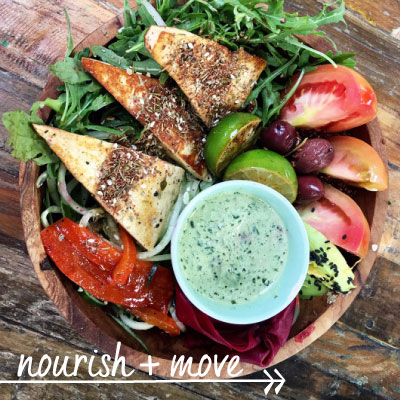
Displaying items by tag: interconnected
Three Things That Are Critical For Healing
Our genes are our predisposition, NOT our fate.
Three things that are critical for healing: It’s
- What you eat
- Moving your body
- Learning how to reset your nervous system through relaxing & dealing with chronic stress. EFT tapping is one of the most directed & powerful ways to peel away those layers of chronic stress.
Dr Mark Hyman
YogAlign Sessions Available For You, In Your Living Room, No Matter Where You Live
COVID-19 Update: My usual classes have been adapted to work with the current constrictions we have in place. I am doing regular Zoom YogAlign sessions for my clients, click on YogAlign in Homepage Menu, then click on Booking to see times and contact details.
If you would like a private session please message, phone or email me, so we can work out a time and day that suits you best.
While we are doing sessions via Zoom, we need to be creative and use whatever gear you have available, if you have a yoga mat that would be ideal. Other props you can use are a shoebox instead of blocks, a strap, belt or scarf, pillows or bolsters and maybe a hand towel to cover eyes for shavasana (these are not essential items), and some drinking water handy. Once you have confirmed your booking, I shall email you a Zoom link just prior to the class. Just click on link to join me and I shall click my end, to l let you in.
Please don't hesitate to contact me if you have any questions.
In Health & Happiness
Love Leonie x
Sweet Sweet Memories
The Gut-Brain Connection
By Dr Libby Weaver
We’ve all heard the term ‘go with your gut’ when it comes to decision-making. But is there really such a thing as gut feelings? And just how connected is our brain with our gut?
Well, scientific research has found that our brain, our gut, and the gut microbes inside it (the different strains of bacteria that make up our gut’s ecosystem) communicate with each other. Doesn’t it just blow your mind how amazing our bodies are?
This is part of an ever-growing body of research that confirms a powerful link between our gut and our brain—more than we’ve ever realised. In fact, the gut is often referred to as our “second brain”. It has its very own nervous system (the enteric nervous system), and signals can be transmitted in both directions, meaning that our gut can send messages to our brain and our brain can send messages to our gut. This connection is termed the ‘gut-brain axis’ and it’s why when we feel anxious we can feel sick in the stomach or when we’re nervous we sometimes get butterflies. It’s also why those with IBS (irritable bowel syndrome) may notice that their symptoms worsen when they’re stressed.
Yet, many of us have become disconnected from the way we eat and the impact that it has on our bodies. We don’t always consider that it was dinner the night before that left us with a food hangover and feeling lousy the next day. We can be left thinking it’s ‘normal’ to feel exhausted at 3pm, to snap before we’ve eaten our lunch or to constantly feel bloated by the end of the day.
Our relationship with food is complex and often has a strong emotional component. Take for example a stressful day – many people might find themselves drawn to chocolate, alcohol, or takeaways, not a health-promoting bowl of broccoli and other nutrient-dense foods! If we’re feeling tired and sluggish we tend to reach for caffeine and sugary foods, anything that will give us a quick surge of energy.
This is not to mention that our emotional state can also radically impact on how we digest our food. Eating while we’re upset can potentially lead to indigestion, as digestive processes are not prioritised when the body is churning out stress hormones.
One of the things we do know about the gut-brain connection is that around 80% of the serotonin in our body (the neurotransmitter in our brain that leads us to feel happy, calm and content) is made in the gut. Which means, if gut health is compromised, serotonin production may also potentially be altered.
The good news is, the power to change our gut health is entirely in our hands. Our gut microbiome (the ecosystem of bacteria in our gut) changes according to what we eat. What’s quite remarkable is that the bacteria in our gut can change within three or four days, so even a few of days of eating poor quality foods can completely change our gut flora picture and therefore our gut health. The same goes for nourishing foods. What we eat is that powerful!
It is however, important to remember that the foods that are nourishing for one person may not be nourishing for another. I’ve lost count of the number of people I’ve met who have continued to eat foods they have been told are “healthy”, despite their body sending them clear messages (often in the form of gut symptoms!) that these foods aren’t right for them.
When we begin to pay more attention to how we feel after we eat, we can learn how to identify our body’s messages and improve our intuition around what’s right for us and what’s not. This includes what we eat and how to take better care of ourselves, but also extends beyond that to having the clarity of mind to make important decisions and the ability to get through our daily tasks without feeling overwhelmed.
So, begin to pay more attention to how you’re left feeling after each meal. It can help to jot down what you’re eating and any symptoms you experience for a couple of weeks to help you identify any common denominators that might better serve to be avoided for a trial period of time.
https://www.drlibby.com/gut-brain-connection/
Contact Leonie Main
m: +64 (0) 274 96 96 33
19B Golf Road, Mount Maunganui 3116, New Zealand
Facebook: Gypset Life






